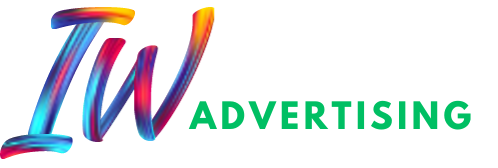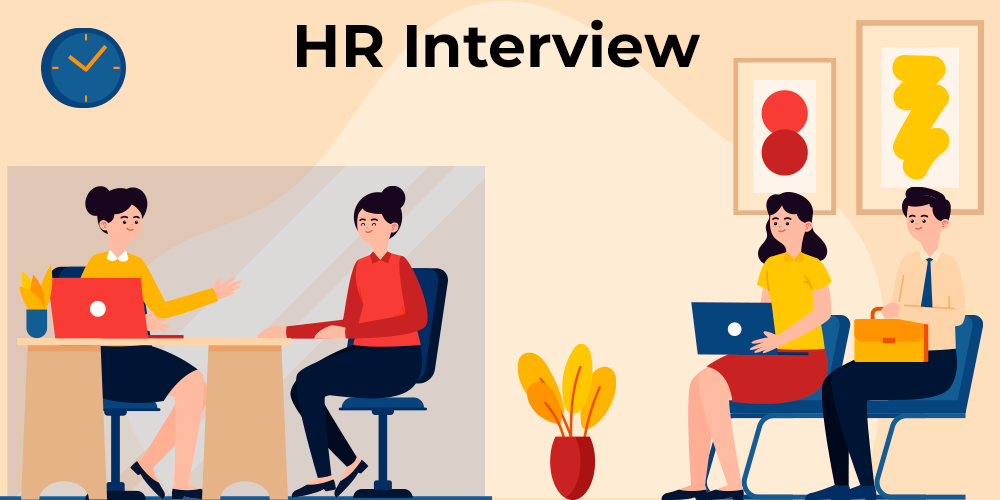There are no two job interviews alike. Each interview has a different format, and the environment of the interview room is also unique. Interviewers, questions and interviewing styles vary. In every interview, the only constant is “self-introduction”.
Self-introduction in a job application is one of the most nerve-wracking parts. Here are some interview tips on how to introduce oneself in a job application. If you want to see a video, click here:
How to make a great first impression in an interview
Interviews are a great way to determine the course of your life. They can also provide solutions for current problems. Interviews can help you achieve your goals. You must learn from your past mistakes and boost your confidence. Here are some tried and tested tips on how to leave a lasting impact.
Interview Questions and Answers
Consider the following points to prepare for a strong interview:
Prepare What You Say
The introduction is always the first part of an interview. Often, people only prepare for technical questions. With practice, you will gain confidence and show it to the panel. Introduce yourself, introduce yourself, and greet the interviewers without any fear. Show your appreciation for the opportunity by being audible. Depending on your expertise, you can include qualifications and experiences in the introduction. Try to include information different from what is already mentioned in the resume.
Search for the company and interviewers
Understanding the company and vacancy is important. Understand what’s expected of you and why you are the right fit for this role. This includes your qualifications, experience, additional knowledge and internships. Do some research on the interviewers and their areas of expertise. This helps you to narrow down the topics and domains where more preparation is required. A Java programmer, for example, will not ask Data Science questions.
Dress appropriately
Appearance is important and can make a big difference in how you are perceived. This also shows your commitment and readiness for the job. It is not a good idea to wear clothes that are too colorful, revealing or ill-fitted. They should also be wrinkled and highly printed.
2. During the interview
Interviews are not just about your knowledge. You will be assessed on your personality, attitude and knowledge. Here are a few tips to help you be your best:
Be logical and clear
Here is the first tip for how to introduce yourself during an interview. Both logic and clarity will be crucial in your introduction in a campus interview. Remember to avoid falsehoods and exaggerations. Also, support your presentation by using real-life experience. Recruiters are most interested in what you have to offer the organization.
Genuineness and sincerity
Be sincere and genuine when you introduce yourself to an interviewer. Interviewers appreciate honesty and sincerity. You will build trust faster with interviewers if you are sincere and authentic. If you present yourself in a natural and genuine way, it will help to create a strong connection between you and the interviewers.
Be aware of body language
A negative impact is created by exhibiting anxiety, speaking quickly, and using unclarified words. Relax, be sure to think before speaking, and speak clearly. As you would in a normal conversation, smile, nod and shake your hands. Normalize your pace and tone.
Maintain Eye Contact
Your nervousness will be evident if you look elsewhere. This will also show a lack of interest. Maintain eye contact with the interviewer when you are talking to them or they ask a question.
Always act professionally
Be professional and respectful during the interview. Attention to body language and dress. Greet your interviewers. Always be punctual. Interviewers are highly experienced professionals who pay attention to every detail.
3. Interviews are followed by a Discussion
In an interview, it’s not only about getting to know the panel or company. Use the opportunity to learn more about the company and the role.
Prepare to ask follow-up questions
Prepare your questions and answer all of your queries. Ask technical questions, such as the project, the techniques, the tools, the programs, or the software that will be used during the interview. Ask about training or any other pertinent questions.
Follow up
Recognize and reward the HR department. Send them a thank-you letter for their efforts. Indicate that you want to know whether the result is positive or negative. Be concise and clear. You should not send multiple inquiries.
Introduction Tips for Interviews
The way you present yourself will determine how recruiters view you. It is important to introduce yourself because you can show your personality, your presentation skills and also interact directly with employers. Here are some top tips for answering the “tell us a little about yourself” interview question.
Step 1: Greet your interviewers
Saluting the interviewers can be a great way to start your introduction. Then, thank the interviewers who called you in for a job interview. Your self-introduction begins with who you are and your location. You can say “My name’s Leonardo and I come from San Francisco”.
Step 2: Tell your interviewers about Your educational background
If you’re a recent graduate, don’t go into too much detail about yourself. Instead, focus on your education. Inform your interviewers of the name and location of your college/university as well as the degree you hold. If you feel it’s important, mention your Cumulative Graduation Point Average (CGPA). Otherwise, don’t discuss grades. If you’ve completed any projects, you should mention them, as well as any certifications that you may have obtained in relation to the job for which you’re applying.
Step 3: A different approach for experienced professionals
You are a professional with years of experience and wonder how to introduce yourself during an interview. After expressing your thanks and greeting the interviewers, you may begin to talk about your most recent job. Mention your employer, current title, length of employment, role, and key responsibilities.
You can share interesting statistics regarding your achievements, but you must back them up with proof. You could, for example, say that your efforts led to a 38 percent increase in customer service sentiment in a 12-month period. It is better to say that you solve problems than just to state this. Do not brag, but be enthusiastic when you mention your achievements. Keep your list of accomplishments short so the interviewers don’t get bored.
Step 4: Write a few words about your passions and hobbies
Don’t be afraid to talk about your hobbies and passions. You can mention your co-curricular pursuits if you’re a recent graduate. Interviewers want to know about your passions and interests because they reflect on you as a person.
Step 5: The closing statement
The closing statement is one of the best and most important tips for introducing yourself during an interview. The closing statement shows your intention to the interviewers. Explain in your closing statement what motivated you for applying for the position and how the role fits with your career goals. You can also talk about how much you enjoy the job and how ready you are to tackle challenging tasks. Tell the interviewers what core skills you have and how you intend to use them in the position you are applying for. You should leave the interviewers with the impression that you are a valuable asset for the organization. Thank you and that’s it.
Phrases You Can Use To Introduce Yourself As A Professional
In an interview, it is important to introduce yourself in English. Here are a few phrases that will work for any candidate.
“Good morning, I’m [Name], I’m delighted to be present today. I am grateful for the opportunity to talk about my qualifications for [Position/Job title] role.
Sample 1:
I have [Number] of years of experience [Field], and was able develop a skill set which is in line with this position. I am excited to bring my experience to this position and to the company in general.”
Sample 2:
I am a highly motivated [Position/Job title], and was able deliver consistent results in my prior roles. My proficiency in [Skills/Qualifications] is a testament to my dedication to continuous improvement and achieving success.”
Sample 3:
“With [Years of experience] in [Skills/Qualifications], I am confident in my ability to make meaningful contributions to this organization. I am eager to join a team who values innovation and quality.”
Sample 4:
I am passionate about my [Field] of expertise and driven to succeed in this industry. My experience in [Skills/Qualifications] has equipped me with the necessary tools to be an asset to this company.”
Sample 5:
I share the values of the company of [Goal/Value] & am eager to join a team who shares my commitment in making a positive contribution to the industry.
Sample 6:
“My career at [Field] was focused on developing my expertise and skills.” I am eager to use my skills and knowledge in this new role, and to continue my career growth within the organization.
Sample 7:
I am a [Position/Job title] and my priority is to pay attention to details and solve problems effectively. I am able to work effectively with my colleagues because of my strong work ethic and excellent communication skills.
Sample 8:
Based on my experience and qualifications, I believe that I am a great candidate for this job. I’m eager to find out more about the vision and goals of the company and how I can help it succeed.
What Should Your Self-Introduction for the Interview Cover?
1. Your Details
2. Qualifications
You can also mention your certifications and other relevant training that prepared you for this role. You can mention when you became certified and why.
3. Work Experience
Talk about your work experience. Include your responsibilities and achievements. Also, mention any notable projects or initiative you were a part.
4. Outside Interests
Mention hobbies, volunteerism, or any other interests which demonstrate your personality, skills and values.
5. Your Values
Talk about your values, both personal and professional, and how they relate to the mission and culture of the company.
6. Future Plans
Your long-term career plans and how the position you are applying for fits in with your professional development plan.
Self-introduction in an Interview
1. Samples for New Graduates
Here is an example introduction for newcomers. You can change the details to suit your expertise.
Sample 1
| Hello, I’m Emma William. I am a B. Tech. IIT Kanpur, Tech. My dissertation was on microbial fermentation and techniques. I did all my experiments solely under the supervision of my supervisor. I have a good grasp of the techniques and would like to improve my skills and knowledge. In light of this, I would like to apply for the Microbiological Project assistant position. |
Sample 2
| I would like to thank you for your consideration of my interview request. Harry Grint is a M. Tech. I have a M. Tech. in Microbiology, from Massachusetts University. My internships have given me practical experience in addition to working independently on my dissertation. In my field of practice, I have been working with antimicrobial resistance. This has led me to find interesting results in a scientific publication. I am also interested in Virology, and have completed a course of specialization on it. |
2. Samples for Experienced Candidates
The following section can be of assistance to candidates who have demonstrated expertise in their respective domains:
Sample 1
| Hello, my name is Rita Roy and I have been an educator and researcher since about ten year. My career began through a renowned online platform, where I helped over 1000 students qualify for competitive national examinations. After I completed my doctorate, I became an Assistant Professor at Marymount University in LA. With a combined experience of ten years, I feel qualified to be a Professor. |
Sample 2
| Christine Fernandez is me. I’ve been a content writer at Infinity Inc. for the past two years. I also have responsibilities as team leader. Infinity Inc. was where I worked for two years as a content designer. “I hold SEO certification and possess expertise in crafting quality content. My experience includes editing more than 50 articles. My aspiration is to advance my skills and assume leadership of your company’s content marketing division, leveraging various online and offline channels.” |
What do interviewers expect from your self-introduction?
Interviewers are not interested in your private life. In a job-interview, recruiters will only be interested in your confidence and social skills. This is to see if you’re a good match for the company and role that you’re applying for. Your self-introduction should be professional and brief. Your self-introduction shouldn’t be more than one minute.
What to avoid during Self-Introduction
Follow the steps to avoid making a bad impression when you give your first answer.
- Avoid enlisting your skills. Instead, demonstrate the skills by using examples.
- Don’t end up repeating your entire resume. Keep your introduction brief and straight to the point.
- Prepare your introduction in advance. Avoid thinking hurriedly and fill in missing details.
- Relax and mention any relevant professional experience.
- Don’t repeat your resume. Include examples of extracurricular activities, extra-curricular learning, tools, techniques, software and interests.
- Include only skills that are relevant to the role.
How long should your self-introduction last during the interview?
It’s important to find the right balance between thoroughness and conciseness when it comes to your self-introduction at a job interview. Your self-introduction shouldn’t last more than two or three minutes. You should have enough time to mention the most important points about you and your qualifications, while still allowing the interviewer the opportunity to ask questions or engage in conversation.
Communication Skills Are Essential
In any interview, communication skills are crucial. They help you express yourself clearly, answer the questions asked by the interviewer, and show your suitability for a role. You can increase your chances of getting the job by having good communication skills. Communication skills are divided into several subtopics.
1. Verbal communication
The use of your voice is a form of verbal communication. It includes volume, clarity, and tone. It’s crucial to be confident and speak with a friendly, professional tone in a job interview.
2. Nonverbal Communication
Body language, facial expressions and gestures are all part of nonverbal communication. You should maintain eye contact with your interviewer. Sit up straight and avoid distracting behaviors.
3. Active Listening
Active listening is about paying attention to an interviewer’s question, seeking clarification when needed, and providing thoughtful responses. This is a very important aspect to show that you’re interested and engaged in the job.
4. Simple and clear messaging
When answering questions during a job interview, it is important to be concise and clear. Focus on answering the questions directly and concisely. Avoid rambling and going on tangents.
5. Empathy and Interpersonal Skill
Interpersonal skills and empathy are the ability to understand others’ perspectives, work with them, and relate to them. These skills are essential in a job application, because they demonstrate that you can work well with others.
6. Cultural Awareness
Communication with people of different cultures and backgrounds is a key part of cultural awareness. In a globalized workplace, this is an important skill to demonstrate. It can also show your ability adapt and work in diverse teams.
You can increase your chances of getting selected for a position by mastering these communication techniques.
Conclusion
“In an interview, customize your introduction to mirror your educational achievements. Tailor your work experience and, notably, your accomplishments. To enhance your presentation, jot down key details. Practice dialogue delivery before the upcoming campus interview.”
You will be able to relax when you present yourself at the interview. Be sure to speak naturally, maintain eye contact and be relaxed. Interviewers are more tolerant of small mistakes or lapses because they understand that the candidate is under a lot of pressure.









